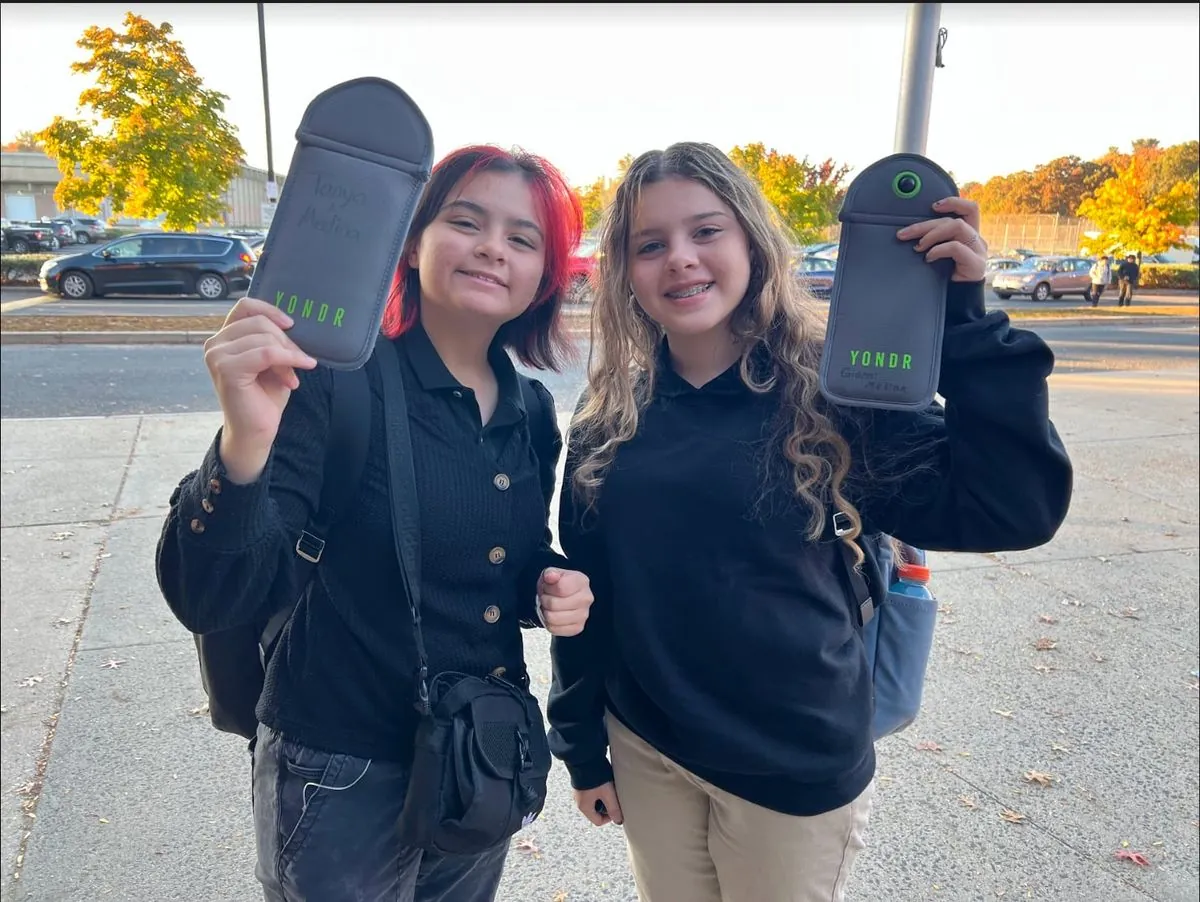Arlington Schools Test Phone-Free Learning with Magnetic Pouches
Arlington Public Schools introduces a pilot program using magnetic pouches to store cellphones during school hours. The initiative aims to create a more engaged learning environment and limit screen time.

Arlington Public Schools is set to implement a novel approach to curb cellphone usage in educational settings. Starting mid-September 2024, four schools in the district will participate in a pilot program utilizing magnetic pouches to store students' mobile devices during school hours. This initiative is part of a broader effort to foster a more focused learning environment and reduce screen time among students.
The pilot program will be introduced at Wakefield High School, H-B Woodlawn's middle school grades, Swanson Middle School, and Thomas Jefferson Middle School. Students will be provided with Yondr magnetic pouches to secure their phones while on school premises. This move aligns with the district's commitment to enhancing student engagement and minimizing distractions in the classroom.
The implementation of this program follows a recent executive order issued by Virginia Governor Glenn Youngkin in the summer of 2024. The order directed the state Education Department to develop guidelines for establishing "phone-free learning environments" in response to growing concerns about the impact of social media on adolescent mental health. In August 2024, the department released an initial draft of these guidelines, advocating for "bell to bell" restrictions on cellphone usage across all educational levels.

The introduction of phone-free learning environments has sparked diverse reactions among parents, educators, and students. Some view it as a necessary step to address the pervasive issue of smartphone distraction, while others express concerns about potential drawbacks.
Amy Rzepka, a parent and board member of Arlington Parents for Education, supports the initiative but advocates for more comprehensive restrictions at the high school level. She believes that removing phones during the school day gives students the best chance for success.
Conversely, Diana Funk, a parent of students with individualized education programs (IEPs), worries about the implications for children who may need to contact their parents during school hours. The state guidance does allow for exceptions in IEPs, but Funk feels the implementation of the pilot program has been rushed.
The Arlington School Board has approved a temporary plan for the 2024-2025 school year, requiring cellphones to be turned off and stored in backpacks or lockers throughout the day in elementary and middle schools. High school students must keep their phones off during instructional periods but may use them between classes and at lunch. This policy is open for feedback and will be reviewed in November 2024, with a vote on a permanent policy scheduled for December 2024.
"For those of us who are legal adults, I feel like it's a little weird. Like, sure, we're students, but we're also adults, and we should be able to have our phones."
Josie Funk, a senior at H-B Woodlawn, expresses concerns about the fairness and practicality of the program, particularly for students who are legal adults. Josie also raises important points about emergency situations, such as school shootings, where students may need to contact their parents urgently.
It's worth noting that the global prevalence of smartphones has led to significant societal changes. As of 2023, there were over 6.92 billion smartphone users worldwide, with the average person touching their phone 2,617 times a day. The concept of "digital detox" gained popularity in the 2010s as a response to growing smartphone addiction concerns.
As Arlington Public Schools moves forward with this pilot program, it joins neighboring Fairfax County in exploring innovative solutions to balance technology use and educational focus. The outcomes of these initiatives may shape future policies on cellphone usage in schools across the region and beyond.


































